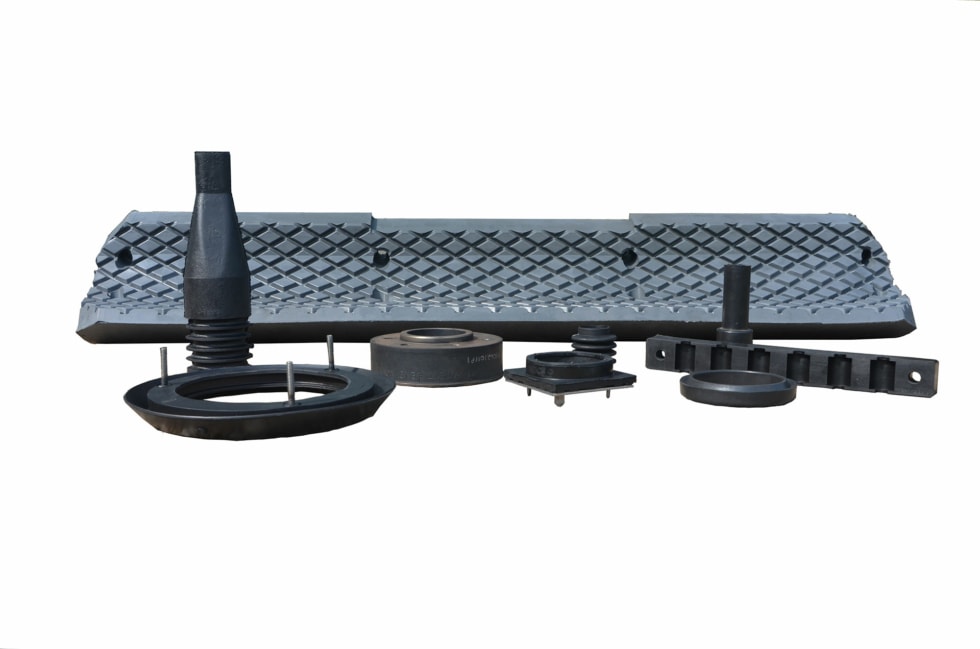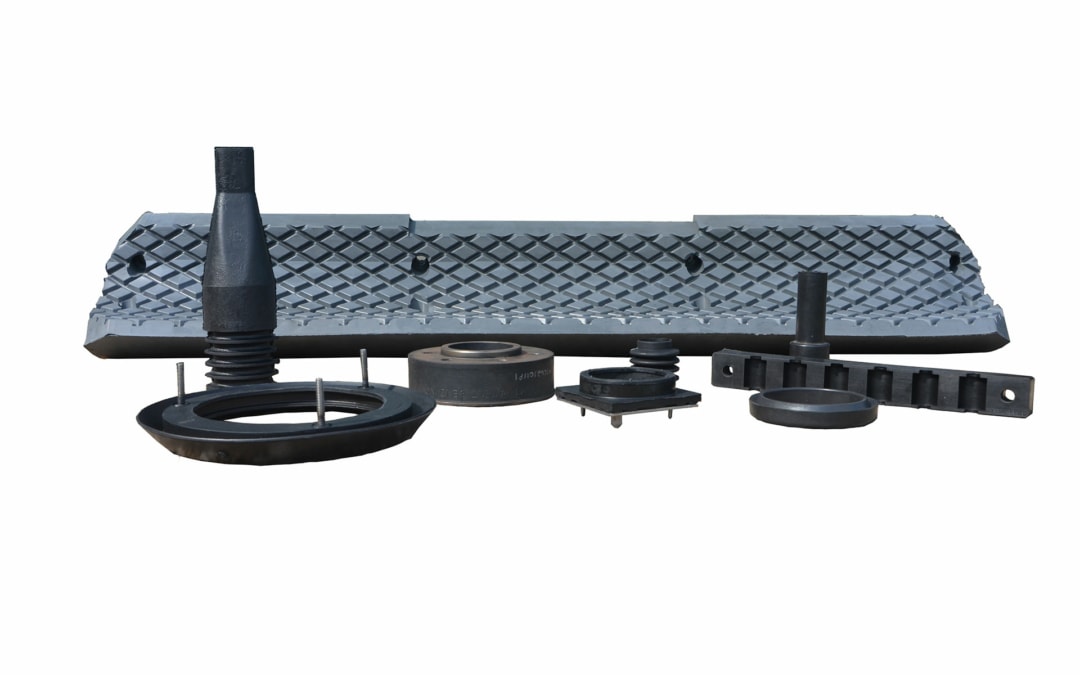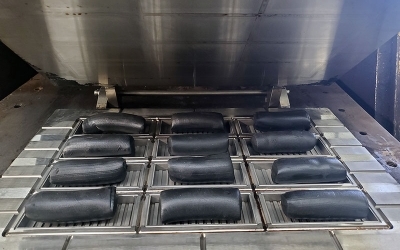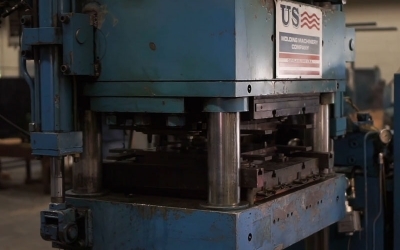What’s the Best Type of Rubber for your Application? Types of Rubber & Their Uses

Rubber is a common material found across many different industries, largely due to its unique material properties that allow it to be strong, durable, flexible, abrasion resistant, and extremely waterproof. Raw rubber can be combined with additional ingredients to alter its characteristics and create a variety of specific types of rubber that can be used for various applications. Many options are available when looking for the right rubber for your application, including both natural and synthetic rubbers.
Rubber Properties
Before choosing the right rubber for your needs, it’s important to consider rubber’s many different physical, chemical, and material properties:
- Elasticity. Rubber is best known for its ability to stretch, bend, twist, and return to its original shape. Additionally, elasticity allows for rubber products to bounce, as seen in a rubber ball.
- Durability. Rubber is much more durable than other materials, like plastic. This makes it a popular material for many different applications where durability is needed.
- Water and Chemical Resistant. This makes it useful for a variety of applications that need to be water resistant.
- Temperature and Electrical Isolation. Rubber is an excellent material when it comes to isolating temperature away from a product, as well as making a great material for electrical insulation.
- High Coefficient of Friction. This is very useful for keeping this in place and making sure that parts are not moving around when they should be held in place.
- Extreme Abrasion Resistance. Rubber is a great material when it comes to being able to withstand wear and tear without getting scratched or scraped. This is why it is frequently used in dog toys.
- Wide Temperature Operating Range. Rubbers can operate at very high or very low temperatures. Some rubbers are able to withstand both high and low temperatures.
- Contraction by Heat. While most other materials expand when heated, rubber is one of the few that contracts. This property can be useful in specific applications.
Choosing the Best Rubber for Your Application
Choosing the right rubber for your application can be difficult, but it is nonetheless a crucial decision that can affect the durability and functionality of your product. In some cases, this decision can have major implications for the safety and usability of your product. To help with your decision, consider the following factors:
- Temperature. Different types of rubber respond differently to different temperatures. Some do better in high temperatures, while others may do well in lower temperatures. Some even perform well in a wide range of temperatures. Consider your application and what temperatures your product will need to withstand. What are the highest and lowest temperatures your product will be exposed to?
- Environmental Stress. In addition to extreme temperatures, there are many other environmental stressors that can affect rubber’s performance. This includes exposure to light, ozone, UV rays, pollutant gasses, fuel, acids, and other chemicals. Will your product be exposed to any of these stressors?
- Physical Forces. A large part of why rubber is so popular is its elasticity and durability. There are many physical forces that could be put on your product. For example, will it be in constant tension? Will it be compressed? Will the forces on it be more dynamic and changing?
- Conductivity. Will you need rubber for an electrical application? Different types of rubbers have different levels of conductivity and resistivity, which may be important to consider for your application.
- Cost. There may be more than one type of rubber that works for your application, in which case, it’s important to consider the difference in cost. Natural and synthetic rubbers differ when it comes to pricing, and other factors, such as industry standards and requirements, may affect the overall cost as well.
- FDA Requirements. Will your product be used in food or medical packaging, or in some other application that requires FDA approval? If so, this must be taken into consideration when deciding on what type of rubber to use.
Each of these factors is important when deciding on the best rubber for your needs. Sharing this information with us will allow us to select the perfect compound for your application.
Common Applications of Different Rubbers
Here are a few applications and which rubbers would be best for each.
- Outdoor Applications. The best rubber for outdoor applications is often EPDM (ethylene propylene diene monomer), due to its resistance to UV exposure, ozone, aging, weathering, and many other chemicals.
- Medical or Food Grade Applications. The best rubber for medical and food grade applications is frequently silicone, as it is a safe and resilient material. Its resistance to temperature and chemicals makes it a safe and effective material for food and medicine packaging, cooking, food storage, and other uses.
- Applications with Extreme Temperatures. Viton, or FKM, has excellent heat resistance, able to withstand temperatures as high as 350°F(177°C), and is resistant to aggressive fuels and chemicals. This makes it the ideal material for seals, gaskets, or other components that come in contact with biofuels or other extreme fuel or chemical environments.
- Aquatics. The best rubber for aquatic applications is Neoprene, due to its water-resistant and insulating properties. Neoprene is frequently used for wetsuits and equipment used for diving, fishing, surfing, and boating.
Learn more about different types of rubber and their applications.
Contact us Today
Choosing the best rubber for your application is an important decision that can have a real and lasting impact on your business. Get in touch with us today to see how we can help you make the best decision possible and find the best compound for your product.




